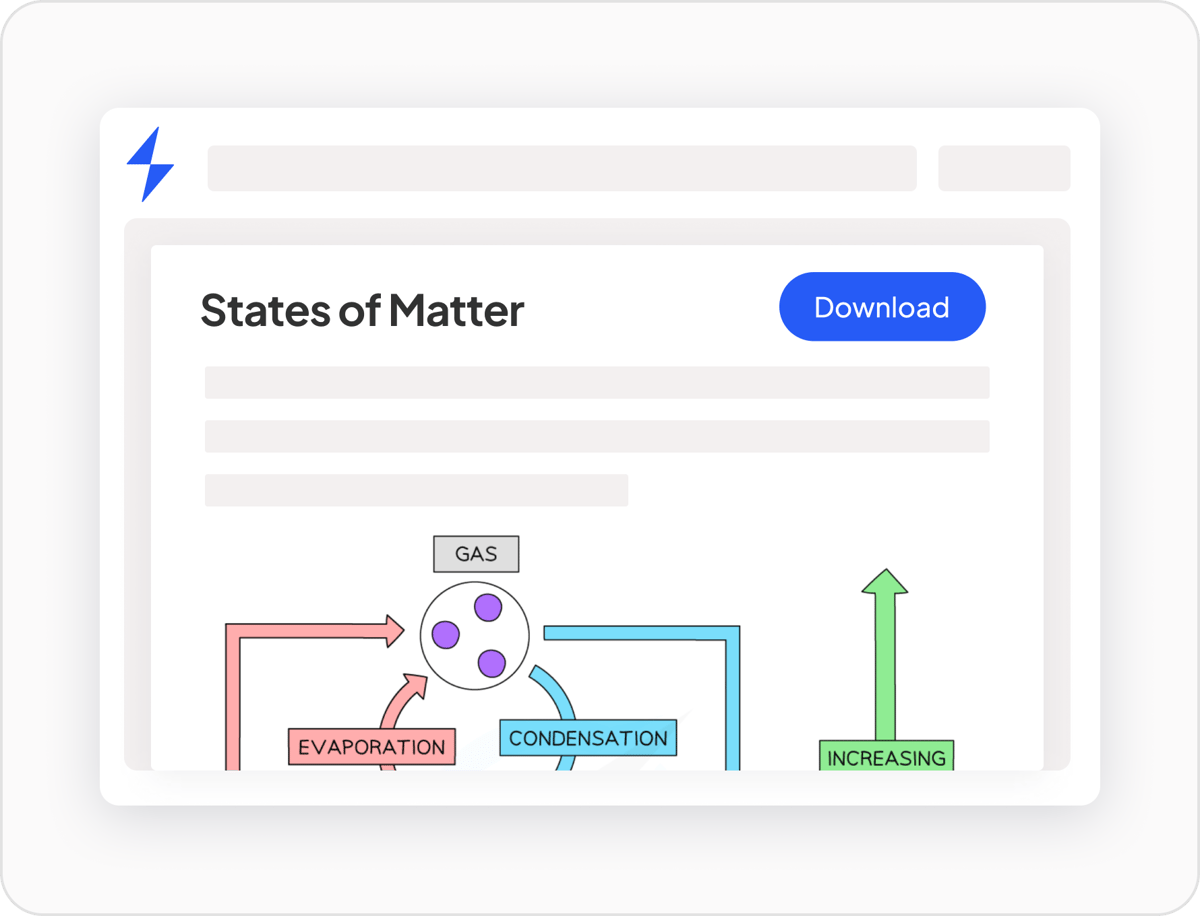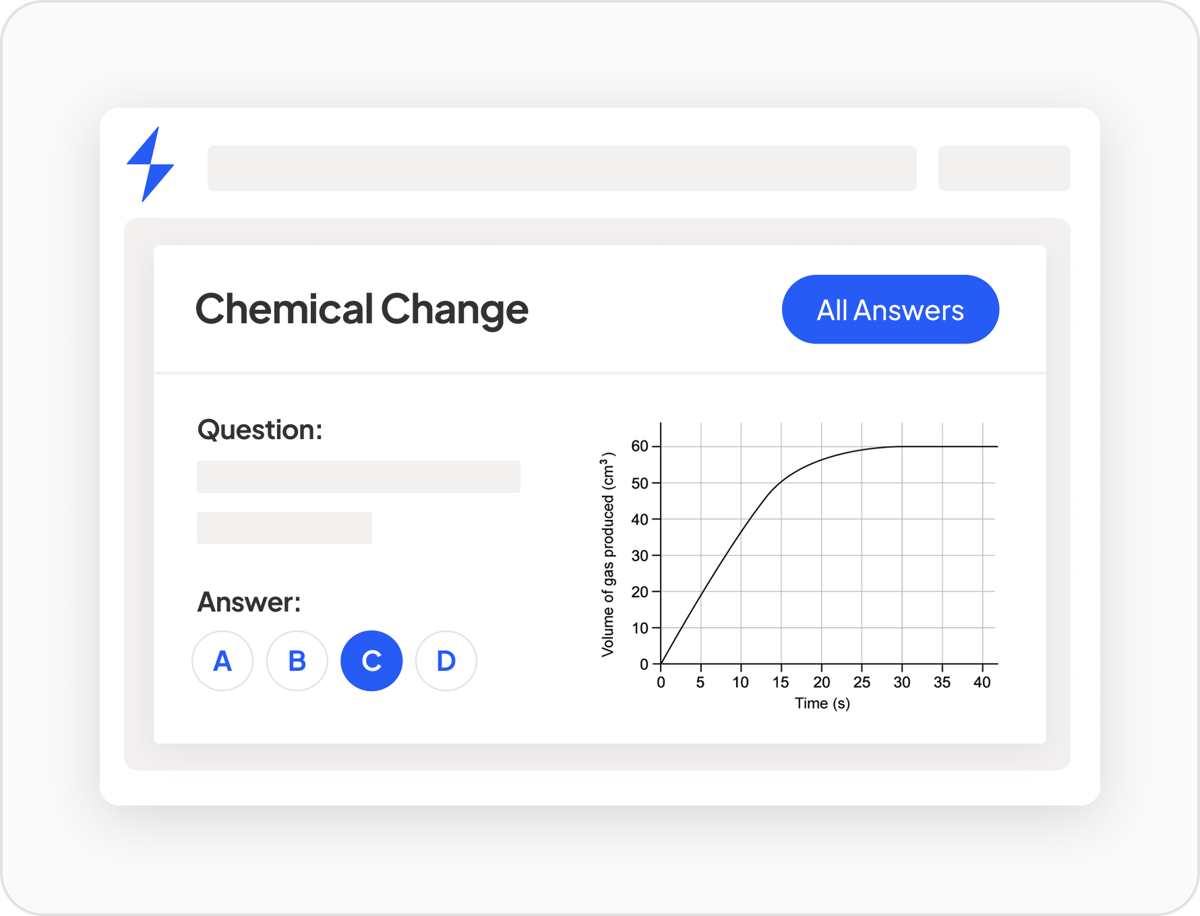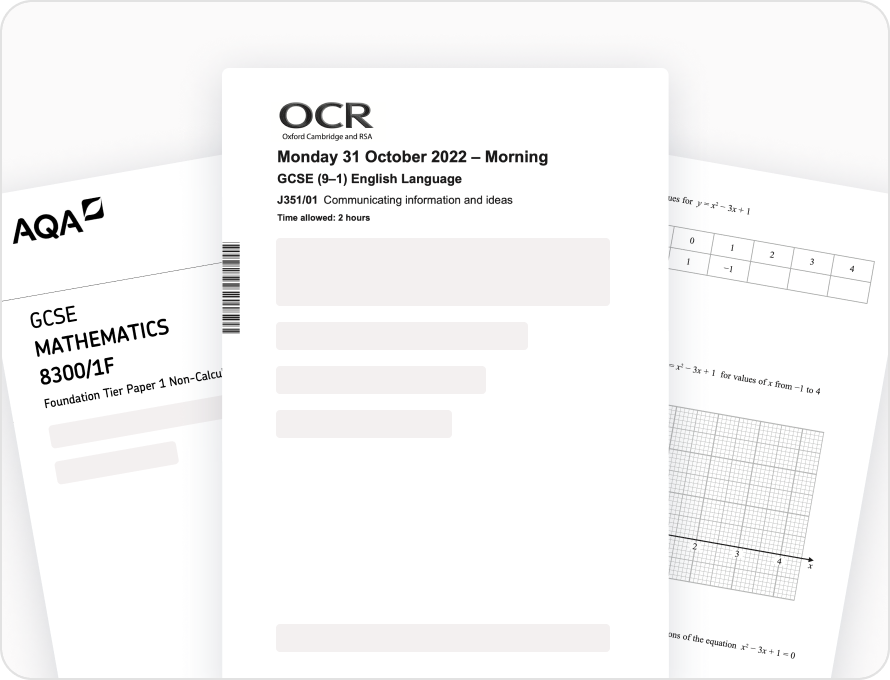A Level Subjects
Biology
Choose your A Level Exam Board
Cambridge (CIE) Resources
Business
Choose your A Level Exam Board
Cambridge (CIE) Resources
Chemistry
Choose your A Level Exam Board
Cambridge (CIE) Resources
Computer Science
Choose your A Level Exam Board
Cambridge (CIE) Resources
Economics
Choose your A Level Exam Board
Cambridge (CIE) Resources
WJEC Eduqas Resources
English Literature
Choose your A Level Exam Board
Cambridge (CIE) Resources
Geography
Choose your A Level Exam Board
Cambridge (CIE) Resources
WJEC Eduqas Resources
Maths: Mechanics
Choose your A Level Exam Board
Maths: Pure
Choose your A Level Exam Board
Maths: Statistics
Choose your A Level Exam Board
Physics
Choose your A Level Exam Board
Cambridge (CIE) Resources
Psychology
Choose your A Level Exam Board
Cambridge (CIE) Resources
WJEC Eduqas Resources
Other
- Accounting
- Art & Design: Art, Craft & Design
- Art & Design: Fine Art
- Art & Design: Graphic Communication
- Art & Design: Photography
- Art & Design: Textile Design
- Chemistry B (Salters)
- Chinese
- Classical Civilisation
- Design & Technology (Product Design)
- Design & Technology: Product Design
- Drama and Theatre
- Economics B
- English Language
- English Language & Literature
- English Literature A
- English Literature B
- Environmental Science
- Film Studies
- French
- French Language & Literature
- Further Maths
- Further Maths A
- Further Maths B (MEI)
- German
- German Language & Literature
- History
- Information Technology
- Law
- Marine Science
- Maths
- Maths B (MEI)
- Media Studies
- Music
- Music Technology
- Philosophy
- Physical Education
- Physical Education (PE)
- Politics
- Religious Studies
- Sociology
- Spanish
- Spanish Language & Literature
- Statistics
A Level revision tools
At Save My Exams, we provide expert-created Revision Notes, Exam Questions & Answers, Past Papers, Flashcards and more, all tailored to help students learn efficiently and boost their grades. Our resources simplify complex topics, build confidence and make exam preparation stress-free.

A Level Revision Notes
Tackle tough A Level topics with ease using our expert-written revision notes. Packed with clear explanations, examiner tips and step-by-step examples, they're designed to make complex content simple. Our course-specific A Level notes ensure you only focus on exactly what you need to know—no fluff, just smart study.
Read more
A Level Exam Questions
Challenge yourself with exam-style A Level questions that mirror the real exams. Organised by topic and difficulty, they help you identify knowledge gaps and strengthen weak areas. Mix question types for a true exam feel, then track your progress with mark schemes and model answers.
Read more
A Level Flashcards
Make A Level revision stick with interactive flashcards built for active recall. Quickly review key terms and concepts, then sort cards into 'I know this' or 'Still learning' stacks. It's the fast, focused way to memorise what matters and spend time where you need it most.
Read more
A Level Mock Exams
Test yourself with full-length A Level mock exams that feel like the real deal. Practise under timed conditions to improve your exam technique and get instant AI feedback with Smart Mark for select subjects. Track your progress, target weak spots and receive an accurate predicted grade
Read more
A Level Smart Mark
Smart Mark is your AI exam coach, giving instant feedback on your answers based on real A Level mark schemes. Built by expert teachers and 69% more accurate than standard AI, it helps you catch mistakes quickly, improve your answers and focus revision where it counts.
Read more
A Level Past Papers
Get instant access to A Level past papers, mark schemes and model answers organised by subject, year and exam board—all in one place. Practise real exam questions to boost confidence, perfect your timing and level up your exam technique.
Read moreGot questions?
We’ve got answers
How do I use Save My Exams resources for A Level revision?
First, select your A Level subject and exam board to check out the resources we offer for your specific course.
Maximise your A Level revision by starting with our clear, course-specific revision notes to build your understanding. Then test yourself using our exam-style questions, checking answers against mark schemes and model responses.
Boost your memory with our interactive flashcards, and when you're ready, try full-length mock exams and past papers under timed conditions. Use Smart Mark for instant, AI-powered feedback and predicted grades in select subjects. This cycle of learning, testing and reviewing helps you target weaknesses, sharpen exam technique and revise more efficiently.
Can I practise A Level exam questions by topic?
Yes! You can practise A Level exam-style questions organised by topic and difficulty on Save My Exams. Each question reflects real exam formats and includes mark schemes and model answers to help you check your work and learn from any mistakes.
You’ll also find questions at varying difficulty levels, so you can build confidence as you go. Practising by topic helps you target weak areas, reinforce key concepts and improve exam technique—all in a focused, efficient way that saves time and boosts results.
How do Save My Exams' A Level revision notes help with exam prep?
Our A Level revision notes make exam prep easier by breaking down complex topics into clear, easy-to-understand explanations. Written by expert teachers, the notes are tailored to your exam board and packed with key definitions, diagrams, step-by-step examples and examiner tips.
They help you grasp difficult concepts quickly and focus only on what you need to know for the exam. Ideal for learning new content or revising, our A Level notes give you a strong foundation before tackling practice questions.
How to revise for A Levels
A Level revision is all about having a smart revision strategy and the right resources. Start by breaking your course into smaller topics and tackling them one at a time. Use Save My Exams’ expert-crafted revision notes to understand the content, then test your knowledge with exam-style questions.
Boost your memory with flashcards, take full mock exams under timed conditions and get instant feedback using our AI-powered Smart Mark tool.
Focus on revision techniques like active recall, spaced repetition and regular practice to build confidence and improve results. For more expert A Level revision tips, head to our Learning Hub.
Why it works

Revise
only what you need toEnjoy the relief and reassurance that every revision guide is written specifically for that syllabus so you only revise what you need to know.
“Never felt so relieved in my life”
“Quite literally has saved my exams on multiple occasions”

Test yourself
and check progressFeel empowered and confident going into exams knowing that you’ve covered all the topics and have a greater understanding of each subject.
“The tailored level of questions builds so much confidence within my students”

Improve
answer by answerGain certainty that you’re answering questions that get maximum marks, from model answers for every question, explained by an expert examiner or teacher.
“I went from a 6-7-7 in Year 10 to 9-9-9 for my real exams, only because of your superb resources”
Leverage the knowledge and expertise of
40+ examiners and educators
With Save My Exams, your revision resources are created by experienced educators and examiners who actually mark A Level exams, so you’ll know exactly what to revise and how to answer questions for maximum marks.

Here’s what our experts say about getting ready for your A Level exams


Although it was a long time ago, I learned an important lesson on the morning of my exam! Never drink a triple strong caramel macchiato (for the first time!) right before the exam! I thought it would help with my nerves, but it just made the jitters much worse! Do yourself a favour: eat a sensible breakfast and drink lots of water, but stay away from the coffee!
VP of Content


Mnemonics and acronyms can be a great way to remember lists or long processes, especially if they are funny.
Biology Expert
A Level students love Save My Exams
100,000 students, teachers, tutors and parents trust Save My Exams because it delivers real results.
“Life saver”
If Save My Exams weren't here I would have failed my A Levels. They have the best notes and explanation for questions even in mcq each of them has their explanation. I hope it gains more popularity.
Syed A, Student
“Excellent Resource and Service”
I highly recommend Save My Exams. I am studying A-Level Biology, Chemistry and Physics and have found the course material to be thorough and easy (as can be) to understand. Hopefully I can force my memory to retain the information well enough to gain great grades in my exams! The customer service team (Jessica, in particular) are friendly and helpful, so don't hesitate to ask if you need help.
KJ S, Student
“Great helpful website”
Easy to use, great for any A level spec. Questions by topic are very accurate representations of the real life exam paper. Would recommend it to anyone especially retake students outside of school.
Jamil M, Teacher
Revision tips and resources
for A Level students
Latest
View allA Level and AS Level Exam Dates 2024
A Level and AS exams will be held between the 26th of April 2024 and the 24th of June 2024.